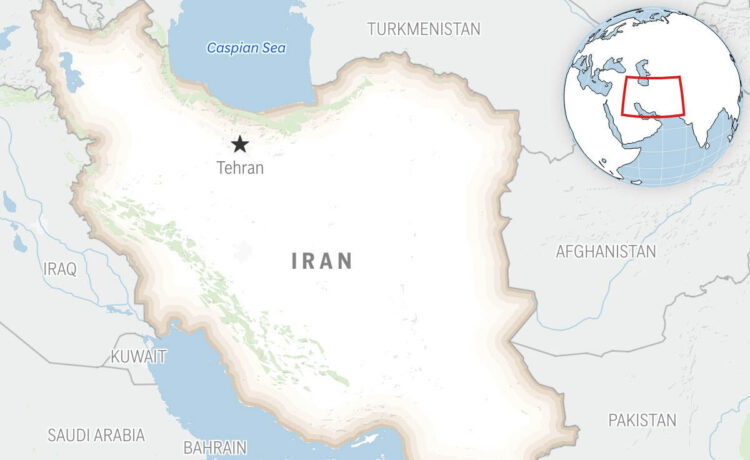DUBAI, United Arab Emirates (AP) — Iran’s rial currency fell to near-record lows Thursday as concerns grew in Tehran that European nations will start a process to reimpose United Nations sanctions on the Islamic Republic over its nuclear program, further squeezing the country’s ailing economy.
The move, termed the “snapback” mechanism by the diplomats who negotiated it into Iran’s 2015 nuclear deal with world powers, was designed to be veto-proof before the world body and would be likely to go into effect after a 30-day window. If implemented, the measure would again freeze Iranian assets abroad, halt arms deals with Tehran and penalizes any development of its ballistic missile program, among other measures.
In Tehran on Thursday, the rial traded at over 1 million to $1. At the time of the 2015 accord, it traded at 32,000 to $1, showing the currency’s precipitous collapse in the time since. The rial hit its lowest point ever in April at 1,043,000 rials to $1.
France, Germany and the United Kingdom warned Aug. 8 that Iran could trigger snapback when it halted inspections by the International Atomic Energy Agency after Israeli strikes at the start of the two countries’ 12-day war in June. Israeli attacks then killed Tehran’s top military leaders and saw Supreme Leader Ayatollah Ali Khamenei go into hiding.
Seeking to use the “snapback” mechanism likely will raise tensions further between Iran and the West in a Mideast still burning over the Israel-Hamas war in the Gaza Strip.
“The U.S. and its European partners see invoking the ‘snapback’ as a means of keeping Iran strategically weak and unable to reconstitute the nuclear program damaged by the U.S. and Israeli strikes,” the New York-based Soufan Center think tank said Thursday.
“Iranian leaders perceive a sanctions snapback as a Western effort to weaken Iran’s economy indefinitely and perhaps stimulate sufficient popular unrest to unseat Iran’s regime.”
Iran appears resigned
Iran initially downplayed the threat of renewed sanctions and engaged in little visible diplomacy for weeks after Europe’s warning, but has engaged in a brief diplomatic push in recent days, highlighting the chaos gripping its theocracy.
Foreign Minister Abbas Araghchi, speaking last week, signaled Iran’s fatalistic view of its diplomacy with the West, particularly as the Israelis started the war just as a sixth round of negotiations with the United States were due to take place.
“Weren’t we in the talks when the war happened? So, negotiation alone cannot prevent war,” Araghchi told the state-run IRNA news agency. “Sometimes war is inevitable and diplomacy alone is not able to prevent it.”





